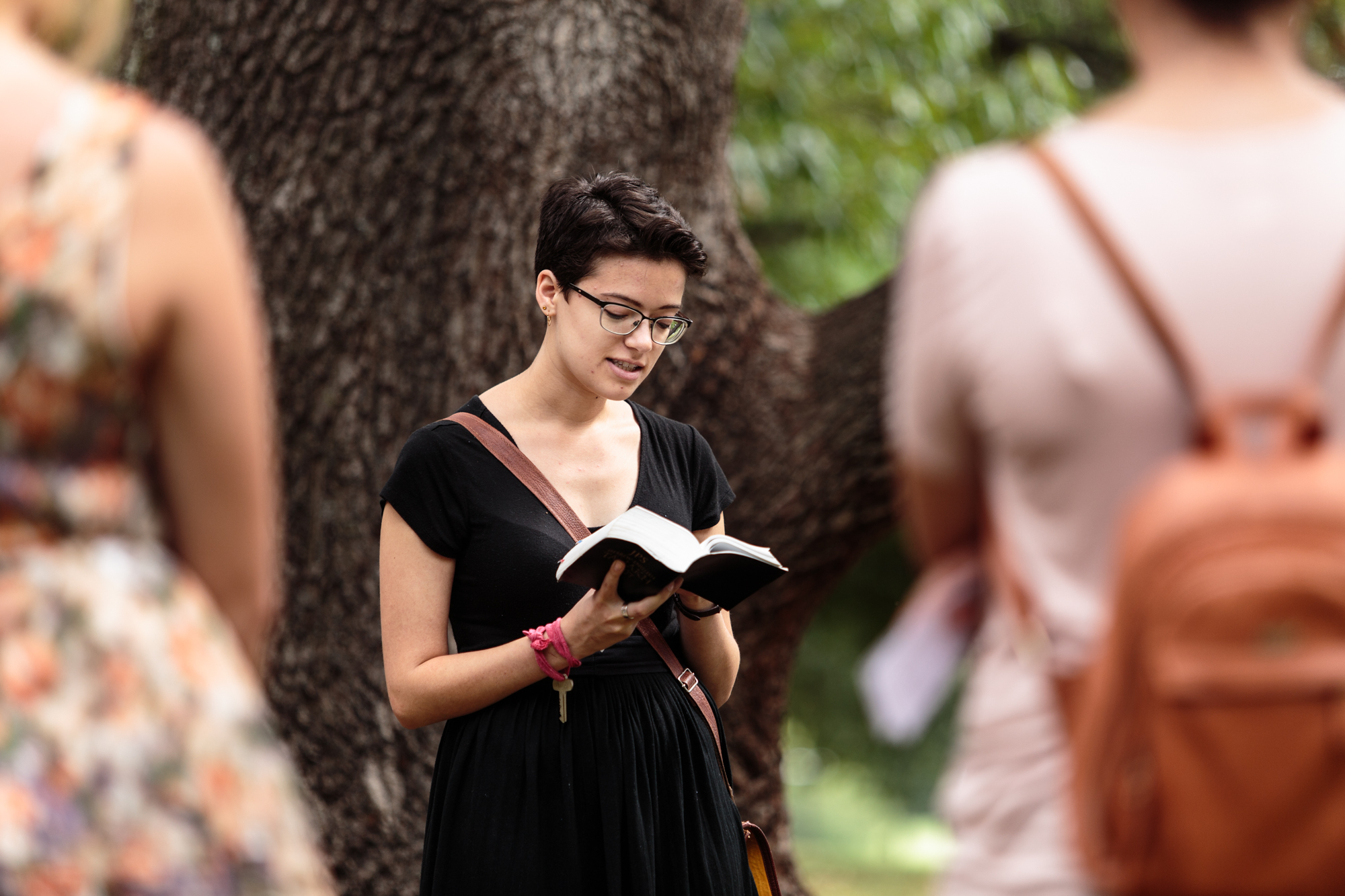On the morning of Sept. 11, 2001, Elinda Kiss was in the lobby of the Marriott World Trade Center for an annual National Association of Business Economics conference when she heard a loud boom and saw the chandelier shake.
A man from San Francisco sitting next to her remarked, “I thought you didn’t have earthquakes in New York.”
Kiss — now a professor at the University of Maryland’s business school — watched United Airlines Flight 175 fly into the south tower of the World Trade Center, and then proceeded to lead a group of people from the conference to Penn Station and out of New York.
“I’m very lucky to be alive,” Kiss said. “And I’m very happy that everybody who was at my meeting with me also survived.”
Fifteen years later, university students and faculty gathered to honor those who didn’t survive the attacks at a multi-faith service Sunday afternoon. Some recited passages from religious texts. Some read poems or prepared speeches. Some merely stumbled upon the service and joined the circle.
Denise McHugh, the coordinator for the university’s Memorial Chapel, recognizes that with each passing year, more and more of the students who attend the chapel’s annual multi-faith 9/11 service will have learned about the day through parents and teachers instead of firsthand.
“Some of us remember the day very clearly, others recall the day partly through memories of others,” she said.
Samad Husain, president of the Muslim Students’ Association, said growing up in a post-9/11 world has been “an awakening of sorts.”
“You see the ugly, you see the pretty,” said Husain, a senior economics major. “Our gathering here today is one of the highlights, but there’s definitely a lot of ugly moments I wish didn’t happen, but unfortunately they do happen and continue to happen.”
This year, 9/11 fell on the eighth day of the final month of the Islamic lunar calendar, Dhū al-Hijjah, one of the most sacred days of the year in Islam where people commemorate Abraham’s journey to Mecca, Husain said.
“There’s a reason why the two have converged this year and it’s brought me a lot of moments of pause to reflect on why that’s the case, why God decided to have the two of these days together,” Husain said.
He remembers 9/11 partly through his own memories, and partly through those of others, and called the gathering at the chapel an “opportunity to reflect on those experiences.”
“I think that’s pretty important for us to remember,” he said, “because there’s a lot of dissenting opinions, and there’s a lot of opposing viewpoints in today’s society, [and] specifically, today’s socio-political climate, that I don’t want to get into, that kind of make people want to go at odds and make people feel that they’re at odds with one another.”
During the service, McHugh asked the participants if anyone wanted to share a person or group they wanted to remember.
Pete Gabriel, who earned his master’s degree in 1985 and served 23 years in the U.S. Army, had a name to share: Tom Zeugner, a former high school classmate.
“He died in Desert Storm, which was a conflict in which about a 100 U.S. people were killed among many others,” Gabriel said. “Tom was a wild and crazy guy, but … couldn’t be here.”
Sruti Das, who represented the Hare Krishna Faith at the service and works at the chapel, composed a poem to read, which he said was inspired by a recent conversation.
“Last week, I was on a trip to New York and I met this man who worked for the U.N. for many years and he described it as a very frustrating experience, because he said, ‘It’s very easy to sell fear. It’s very difficult to sell hope,'” Das said.
Kiss, who did not attend Sunday’s service, notices the barriers at the White House and the security at the Federal Reserve and can’t help but see the product of fear.
“One of the things I don’t like is the consequence that we became very fearful, and if we let ourselves be too fearful, the terrorists will have won if we’re afraid to go places,” she said.
The changes in the last 15 years haven’t been all for the worse though, Kiss said.
“We’ve become a much more friendly country, being willing to help strangers in a way that maybe we weren’t before,” she said. “I think those are lessons to learn. We have to be watchful, but we shouldn’t let it overtake our lives so that we are afraid to go any place.”



